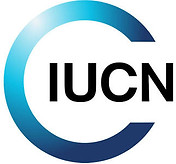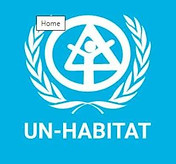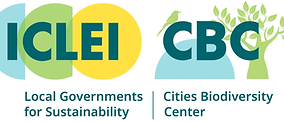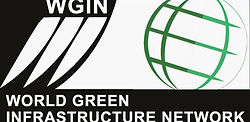URBIO (URban BIOdiversity and Design) is an open worldwide scientific network for education and research with the aim to promote the implementation of the UN Convention on Biological Diversity (CBD) in urban areas. Within the CBD programmes, URBIO is a scientific advisor for the Major Group "Local Authorities" and partner of the "Global Partnership on Local and Subnational Action for Biodiversity".
URBIO upcoming event: URBIO 2026 Conference "Education for urban biodiversity in design: practice-led research", 2-4 November 2026, Xi'an, China, link Deadline for abstract submission: May 01, 2026
Upcoming events of our partners: IFLA World Congress 2026 in Hong Kong, China (28–30 Oct) link
ESP 2026 Europe conference 2026 in Prague, Czechia (18-22 May) link
URBIO past event: URBIO Australasia conference "Urban Biodiversity and Design in Australasia: research, teaching, & collaboration opportunities East to West", Perth, 31 July-2 August 2025 https://urbio2025.tilda.ws/
URBIO 2025 Australasia Conference Book of abstracts can be found here
URBIO partners
The URBIO network actively collaborates with various international governmental, scientific, and non-governmental organizations, affiliated scientific societies, and working groups. URBIO is a member of the Global Partnership on Cities and Biodiversity founded with the secretariat of the CBD, the International Union for Conservation of Nature (IUCN), the United Nations Environment Programme (UNEP), the United Nations Human Settlements Programme (UN-HABITAT), the Council for Local Environmental Initiatives (ICLEI) and its Local Action for Biodiversity program, International Federation of Landscape Architects (IFLA), World Green Infrastructure Network (WGIN), Society for Urban ecology (SURE), and other academic institutes and governmental organizations.

Convention on Biological Diversity (CBD)
The Convention on Biological Diversity (CBD) is the international legal instrument for "the conservation
of biological diversity, the sustainable use of its components and the fair and equitable sharing of
the benefits arising out of the utilization of genetic resources" that has been ratified by 196 nations.
Its overall objective is to encourage actions that will lead to a sustainable future. The Convention covers biodiversity at all levels: ecosystems, species, and genetic resources. It also covers biotechnology, including through the Cartagena Protocol on Biosafety. In fact, it relates to all possible domains that are directly or indirectly related to biodiversity and its role in development, ranging from science, politics, and education to agriculture, business, culture, and much more.
The CBD’s governing body is the Conference of the Parties (COP). This ultimate authority of all governments (or Parties) that have ratified the treaty meets every two years to review progress, set priorities, and commit to work plans. The Secretariat of the Convention on Biological Diversity (SCBD) is based in Montreal, Canada. Its main function is to assist governments in the implementation of the CBD and its programmes of work, to organize meetings, draft documents, and coordinate with other international organization,s and collect and spread information. The Executive Secretary is the head of the Secretariat. The Convention on Biological Diversity (CBD) entered into force on 29 December 1993. It has 3 main objectives:
-
The conservation of biological diversity
-
The sustainable use of the components of biological diversity
-
The fair and equitable sharing of the benefits arising out of the utilization of genetic resources.
More information: https://www.cbd.int/
Global Partnership on Local and Subnational Action for Biodiversity
The Global Partnership on Local and Subnational Action for Biodiversity was established in 2008 with the goal of bringing together all the relevant networks and initiatives involved, directly or indirectly, in implementing the Convention on Biological Diversity. Membership is open to all. Within the Global Partnership, advisory committees of cities and of subnational governments provide specific direction based on hands-on experience, while a group of urban biodiversity researchers, URBIO, add scientific expertise to the Partnership.
The Advisory Committee of Cities to the Global Partnership on Local and Subnational Action for Biodiversity consists of representatives of cities that have hosted recent meetings of the biennial Conference of the Parties to the CBD (Hyderabad, Nagoya, Bonn, Curitiba), as well as the host city of the Secretariat, Montreal, and other cities that have been particularly active in the area of subnational implementation (Montpellier, Mexico City). The island-state Singapore has, in addition, played a continued supporting role to the Advisory Committee. The Advisory Committee of Cities has shown initiative not only in its advisory capacity but also through example: led by Mexico City, an exhibition of urban biodiversity in all the cities of the Committee was compiled and displayed at CBD COP 11 in Hyderabad, and at local venues. In addition Curitiba, Bonn and Nagoya have hosted meetings of the Global Partnership.
The Advisory Committee of Subnational Governments to the Global Partnership on Local and Subnational Action for Biodiversity consists of representatives of subnational governments that have hosted recent meetings of the biennial Conference of the Parties to the CBD (Gangwon Province, Andhra Pradesh State, Aichi Prefecture, Paraná State), as well as the host subnational government of the Secretariat, Quebec, and other subnational governments that have been particularly active in the area of subnational implementation (Catalonia, São Paulo State). The Advisory Committee of Subnational Governments has shown initiative not only in its advisory capacity but also through example: led by Catalonia and Quebec, an action plan of projects is being compiled and implemented, creating a model for other subnational governments to follow. In addition Catalonia, Gangwon Province and Paraná State have hosted meetings of the Global Partnership, and Quebec is planning to host the next meeting of the Advisory Committee of Subnational Governments in 2015.
The group “Urban Biodiversity and Design” (URBIO) consists of researchers with a focus on urban biodiversity, affiliated with the Global Partnership on Local and Subnational Action for Biodiversity. URBIO has convened conferences on urban biodiversity research and design in parallel with the past three and upcoming biennial Conference of the Parties to the CBD, the outcomes of which have been fed into summits on cities and subnational governments for biodiversity, also in parallel with the COP. URBIO is currently compiling a research agenda, with broad input, indicating which areas of urban biodiversity research are most urgent and necessary.
More information: https://www.cbd.int/subnational/partners-and-initiatives
International Union for Conservation of Nature (IUCN)
The International Union for Conservation of Nature (IUCN) is an international organization working in the field of
nature conservation and sustainable use of natural resources. Founded in 1948, IUCN has become the global
authority on the status of the natural world and the measures needed to safeguard it. IUCN is a membership
Union uniquely composed of both government and civil society organisations. It brings together
governments, NGOs, scientists, businesses, and communities to make the right decisions for people and
for the planet by putting the latest science into practice.
By harnessing the experience, resources, and reach of its more than 1,400 Member organisations and the input of some 17,000 experts, IUCN is the global authority on the status of the natural world and the measures needed to safeguard it. Founded in 1948 as the world's first international environmental organization, IUCN is the world's largest global conservation network and leading authority on policies, standards, and programs for the environment and sustainable development today. Its mission is to influence, encourage, and assist societies throughout the world to conserve the integrity and diversity of nature and to ensure that any use of natural resources is equitable and ecologically sustainable.
More information: https://iucn.org/


United Nations Human Settlements Programme (UN-HABITAT)
The United Nations Human Settlements Programme (UN-Habitat) is mandated by the UN General Assembly to promote
socially and environmentally sustainable towns and cities. UN-Habitat is the focal point for all urbanization and human
settlement matters within the UN system. UN-Habitat works with partners to build inclusive, safe, resilient & sustainable
cities and communities. UN-Habitat promotes urbanization as a positive transformative force for people & communities,
reducing inequality, discrimination and poverty. It works in over 90 countries to promote transformative change in cities
and human settlements through knowledge, policy advice, technical assistance, and collaborative action.
UN-Habitat’s strategic plan 2020-2023 adopts a more strategic and integrated approach to solving the challenges and opportunities of 21st-century cities and other human settlements.
UN-Habitat’s normative work, including groundbreaking research and capacity-building, sets standards, proposes norms and principles, shares good practice, monitors global progress and supports formulation of policies related to sustainable cities and human settlements.
UN-Habitat’s operational work takes various forms of technical assistance, drawing on its unique expertise in sustainable urbanization and crisis response. UN-Habitat implements projects to provide value-added and tailored support to countries.
Through advocacy, communication and outreach, UN-Habitat mobilizes public, political and financial support and collaborative action to inspire qualitative change in national development plans, policy frameworks, development practice and investment choices for sustainable urban development at the local, national and global level.
UN-Habitat collaborates with governments, intergovernmental, UN agencies, civil society organizations, foundations, academic institutions and the private sector to achieve enduring results in addressing the challenges of urbanization.
More information: https://unhabitat.org/
CLEI’s Cities Biodiversity Center (CBC)
ICLEI’s Cities Biodiversity Center (CBC) is located in Cape Town, South Africa, embedded in the
Africa Regional Office of ICLEI. The CBC has a global mandate to work on biodiversity-related
matters. It offers cities a broad portfolio of supportive services through a dedicated team of
passionate, skilled, and dynamic biodiversity and urban development experts.
Through ICLEI CBC programmes and initiatives, it seeks local solutions and promotes innovation
to address the complex issues surrounding natural capital and the degradation of ecosystem services in a rapidly urbanizing world.
The CBC recognizes the crucial role that cities and local governments play in the pursuit of a greener existence through efficiently integrating urban development and biodiversity management at the local level.
More information: https://cbc.iclei.org/

International Federation of Landscape Architects (IFLA)
In 1948 the International Federation of Landscape Architects (IFLA) was founded in Cambridge,
England with Sir Geoffrey Jellicoe as its first President. It represented 15 states from Europe and
North America. Later, in 1978, the IFLA’s headquarters were established in Versailles, France,
where they currently reside.
IFLA currently represents 80 national associations from Africa, the Americas, Europe, Asia Pacific, and the Middle East. Its mission is to create globally sustainable and balanced living environments for the benefit of humanity worldwide, to promote the landscape architecture profession within a collaborative partnership of the allied built-environment professions, demanding the highest standards of education, training, research, and professional practice, and providing leadership and stewardship in all matters. IFLA officially represents the world body of landscape architects through its member associations and regions and in both governmental and non-governmental organizations, such as the UN, UNESCO, UIA, etc. It is a not-for-profit, non-political, non-governmental organization.
More information: https://www.iflaworld.com/who-we-are

World Green Infrastructure Network (WGIN)
The World Green Infrastructure Network's mission is to advocate and promote the integration of
green infrastructure in urban planning globally.
The objectives include:
-
Integration advocates. To be a global advocate for the integration of green infrastructure in urban areas.
-
Spread awareness. To share information about green roof infrastructure science, practice, economics and environmental and social benefits.
-
Green city planning. To provide support data for green city planning.
-
Research & Development. To promote and engage in green infrastructure research and development with like-minded associations and companies.
-
Annual congress. To hold an annual World Green Infrastructure Congress (WGIC) & Awards.
-
Climate benefits.To promote the benefits of green infrastructure in mitigating the impacts of climate change on urban populations.
More information: https://worldgreeninfrastructurenetwork.org/

Society for Urban Ecology (SURE)
The Society for Urban Ecology (SURE)'s mission is to develop an understanding of the structure and
function of urban ecosystems and to advance a balanced interaction between humans and their
environments in cities and towns worldwide. It also aims to foster and develop knowledge
and implementation of urban ecology worldwide by strengthening contacts and enriching the
dialogue between researchers and practitioners, by representing the interests of the academic
community within the wider international institutional context and by making the collective
expertise of SURE available, where appropriate, in furthering the discussion of urban ecological issues.
More information: https://www.society-urban-ecology.org/

The Nature of Cities (TNOC)
The Nature of Cities (TNOC) is a Public Charity (as recognized by the U.S. Department of the Treasury),
a non-profit corporation registered in the State of New York. TNOC Europe is a registered Charity in
Ireland. TNOC was founded in 2012. It modifies the word nature to mean the character of cities, through a
green, blue, and community lens. We believe the route to cities and communities that are better for nature
and all people is through transdisciplinary dialogue and collaboration. TNOC combines art, science, and
practice in innovative and publicly available engagements for knowledge-driven, imaginative, and just green
city making.
TNOC works in three principal ways. First, it publishes a virtual magazine and discussion site featuring, in multiple
formats, the diverse work and ideas of our contributors around the world. Second, it pursues partnerships and special projects related to its mission, such as in the union of art, culture, education, and science. Third, it creates innovative and interactive live and online events and conferences that engage diverse voices from multiple ways of knowing and modes of action into joined conversations focused on specific challenges. The most recent of such events is The Nature of Cities Festival.
More information: https://www.thenatureofcities.com/TNOC/

.png)










